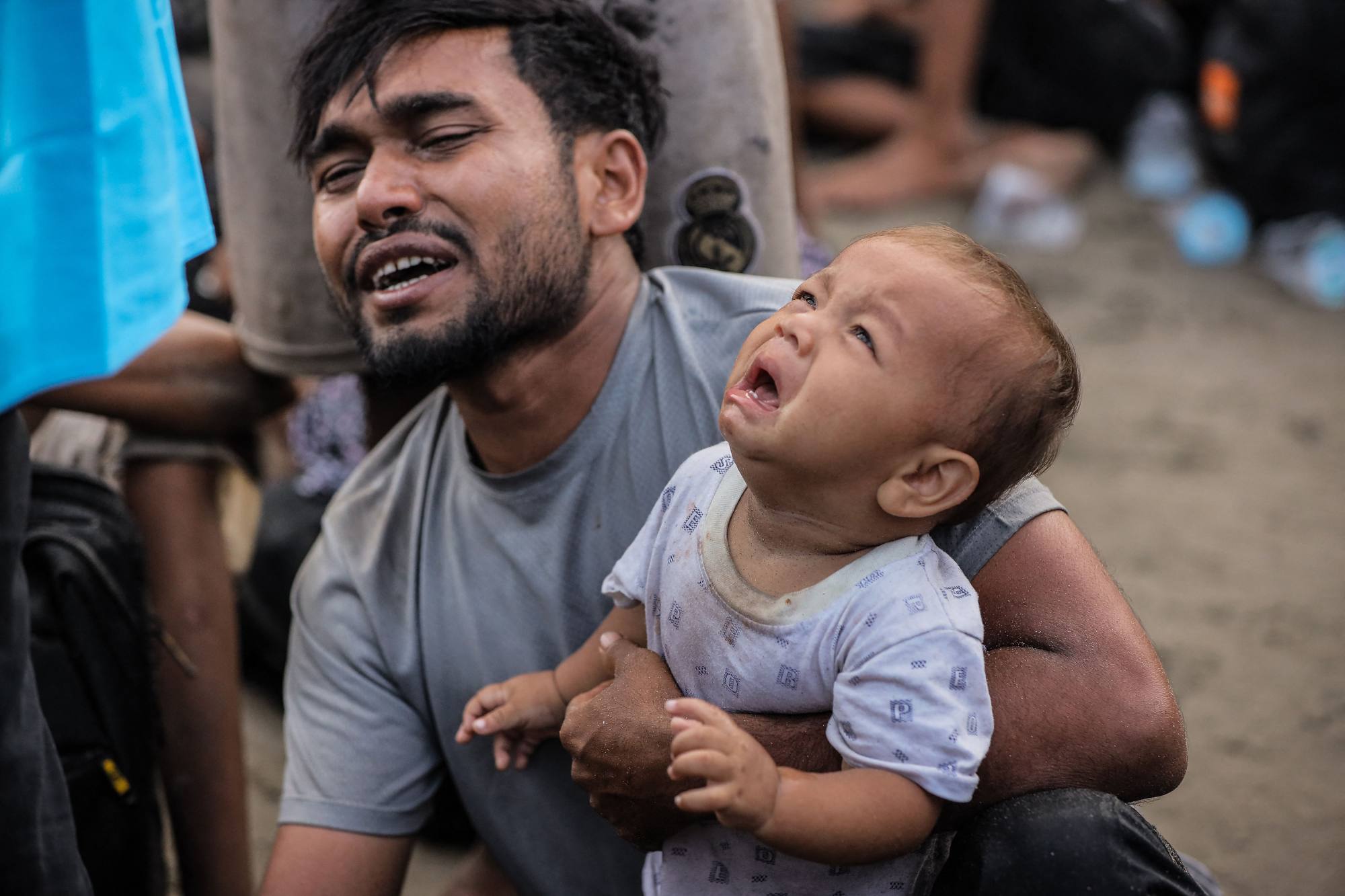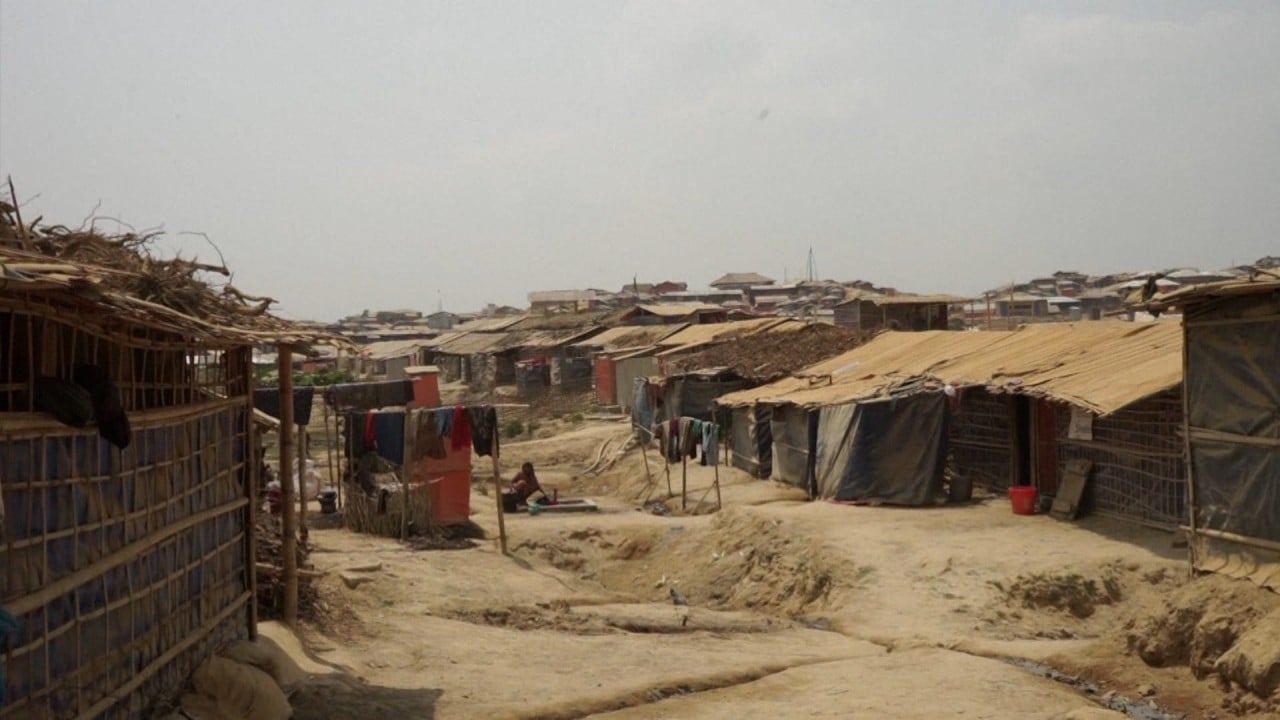About 250 Rohingya refugees in an overcrowded wooden boat have been turned away from western Indonesia and sent back to sea, residents said on Friday.
The group from the persecuted Myanmar minority arrived off the coast of Aceh province on Thursday but angry locals told them not to land the boat. Some refugees then swam ashore and collapsed from exhaustion on the beach.
After they were forced back the decrepit boat travelled dozens of kilometres to the coast of North Aceh, where the refugees landed on a beach. But locals again sent them back to the boat and out to sea late Thursday.
By Friday, the vessel, which some on board said had sailed from Bangladesh about three weeks ago, was no longer visible from where it had landed on North Aceh’s shores, residents said.
Thousands from the mostly Muslim Rohingya minority risk their lives each year on long and expensive sea journeys, often in flimsy boats, to try to reach Malaysia or Indonesia.
“We’re fed up with their presence because when they arrived on land, sometimes many of them ran away. There are some kinds of agents that picked them up. It’s human trafficking,” said Saiful Afwadi, a traditional community leader in North Aceh.
Chris Lewa, director of Rohingya rights organisation the Arakan Project, said the villagers’ rejection seemed to be related to a lack of local government resources to accommodate the refugees and a feeling that they were being taken advantage of by people smugglers.
“Rohingya smugglers do indeed take advantage, using Indonesia as a transit to Malaysia. But, at the same time, no other country would let them in,” Lewa said on Friday.

“It is sad and disappointing that the villagers’ anger is against the Rohingya boatpeople who are themselves victims of those smugglers and traffickers.”
Lewa said she was trying to find out where the boat went after being turned away but “no one seems to know”.
A 2020 investigation by AFP revealed a multimillion-dollar, constantly evolving people-smuggling operation, stretching from a massive refugee camp in Bangladesh to Indonesia and Malaysia, in which members of the stateless Rohingya community play a key role in trafficking their own people.
India must probe arrests of Rohingya Muslims, cease crackdown: rights group
India must probe arrests of Rohingya Muslims, cease crackdown: rights group
Locals in neighbouring Ulee Madon and Cot Trueng villages gave the refugees supplies, including food, clothing and petrol, before turning their boat back to sea on Thursday, North Aceh’s Afwadi said.
In an effort to encourage their departure, locals also repaired the boat after Rohingyas on board tried to sink it, he said.
Afwadi was among locals in boats who escorted the Rohingyas’ vessel away from the shore, ensuring it left the area.
A village leader from Ulee Madon said residents did not have the resources to accommodate more refugees, adding that Rohingyas had disappeared from temporary shelters provided in the past.
“We don’t have any proper place to house them. From experience, these people are unruly,” Rahmat Kartolo said on Thursday.
‘We want to go home’, plead Rohingya in Bangladesh 6 years after exodus
‘We want to go home’, plead Rohingya in Bangladesh 6 years after exodus
“It’s not that we don’t care about humanity, but these people sometimes run away.”
Nearly 600 Rohingya refugees have reached western Indonesia this week, with 196 arriving on Tuesday and 147 on Wednesday.
UN refugee agency spokeswoman Mitra Salima Suryono told AFP many wanted to reunite with relatives in Malaysia, while others just sought protection.
“Many of them said it didn’t matter where they were going. The most important thing for them is they will get safety, security, and livelihood,” said Suryono.
More than 2,000 Rohingya are believed to have attempted the risky journey to Southeast Asian countries in 2022, according to the UN agency.
Nearly 200 Rohingya died or went missing last year while attempting hazardous sea crossings, it has estimated.


